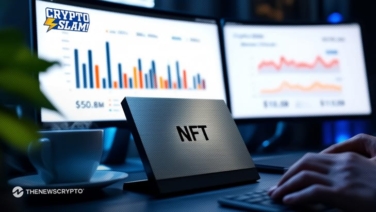Decentralized finance is gradually becoming a mainstay in users’ daily lives worldwide. With the help of blockchain technology, DeFi is getting closer to replacing traditional financial methods and revolutionizing the finance industry. According to a Coinshares report, an institutional crypto investing platform, more than $9.3 billion in annual institutional inflow occurred in the cryptocurrency space in 2021, indicating that bigger things are on the way in the DeFi sector.
DeFi enthusiasts believe that this is only the beginning of this innovative financial model, with constant innovation in the sector giving legacy institutions a run for their money. DeFi has eliminated the need for third parties by ensuring a trustless, permissionless financial system. One of the critical drivers of growth in DeFi has been incentives to onboard new users.
With the introduction of GameFi, also known as play-to-earn games, blockchain technology has made its way into the gaming industry. GameFi is a hybrid of gaming and DeFi that provides a new experience for gamers worldwide while also creating passive income streams thanks to the financial incentives available in the GameFi sector. This article will look at how to generate passive income in DeFi and GameFi as a whole and projects worth considering in the long run.
Passive Income Streams in DeFI and GameFi
There are numerous ways to earn passive income using cryptocurrencies. For example, some DeFi protocols offer yield farming and staking services to attract investors with APYs and APRs. Yield farming, also known as liquidity farming, allows users to deposit cryptocurrencies into their protocol to earn additional rewards.
The total value of liquidity pools in yield farming projects is around $5 billion. Protocols like Coinchange provide yield farming options. Another popular way to earn passive income is staking. Blockchain-based protocols encourage users to secure their tokens and earn a percentage of passive income. Cosmos is an example of these protocols.
In-game NFTs such as lands, avatars, and weapons can be traded or used to achieve new objectives, which can be pretty profitable for GameFi. Furthermore, as they explore the game and unlock new levels, active players earn rewards in tokens. Attack Wagon is one such project that is taking over the landscape.
Introducing Attack Wagon
Attack Wagon is a blockchain gaming development studio that focuses on free-to-play and pay-to-win games. Attack Wagon uses blockchain technology, DeFi, and NFTs to provide users with an immersive gaming experience. Attack Wagon recently released Scrap Guilds, a sci-fi RPG with direct in-game use of Attack Wagon’s native token, $ATK.
Attack Wagon aims to provide users with real-time value by allowing them to earn the same cryptocurrency passively across multiple games, increasing their chances of earning significantly more money. $ATK, the native token of Attack Wagon, is an ERC-20 polygon chain token. $ATK can be used for in-game purchases within the Attack Wagon ecosystem, such as NFTs and PVP entry fees. Scrap Guild, Attack Wagon’s first game, has a rich storyline and exciting features like multiplayer mode, quests, and PvP.
Attack Wagon Lands are divided into three plots: common plots, grand plots, and iconic plots. There are 6,975 common land plots, 1,000 grand land plots, and 30 iconic land plots. Each plot is an ERC-721 that generates revenue.
The Grand and Iconic plots receive a more significant portion of the fee and additional benefits. Iconic plots also allow for placing a customized banner on the station map. In addition, users can earn rewards for purchasing any of these plots, each with its own set of benefits.
These plots are a viable source of passive income because holders receive benefits such as a share of marketplace revenue and an increase in the amount of $ATK, the native token of Attack Wagon earned in-game. Other benefits include voting rights and a customized in-game NFT that can be traded on the marketplace for additional income.
Conclusion
GameFi and DeFi are futuristic approaches to the gaming and finance sectors. Creating diverse opportunities for passive income streams aligns with the future of a digital world and promotes decentralization and openness. GameFi is here to stay and, without a doubt, would propel the gaming sector to new highs.








